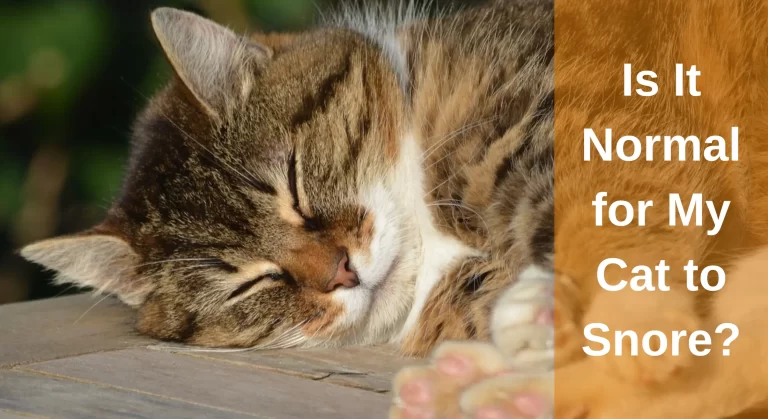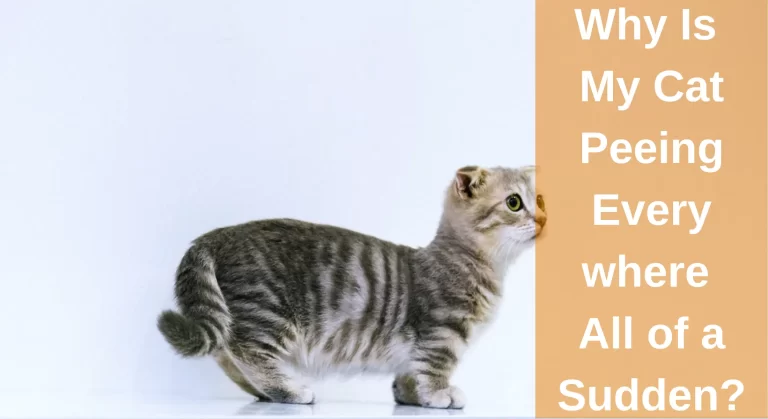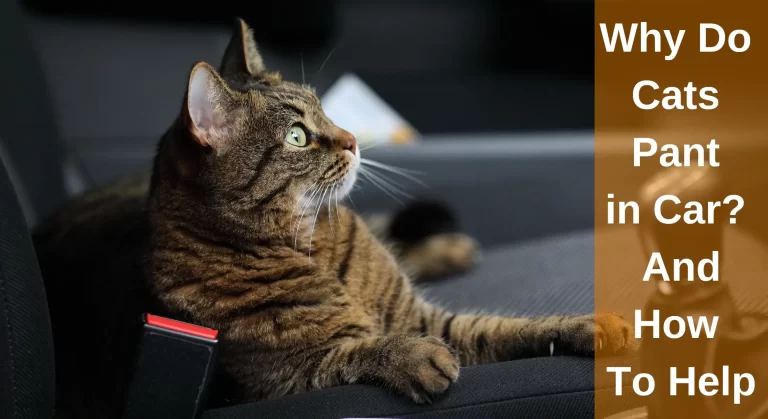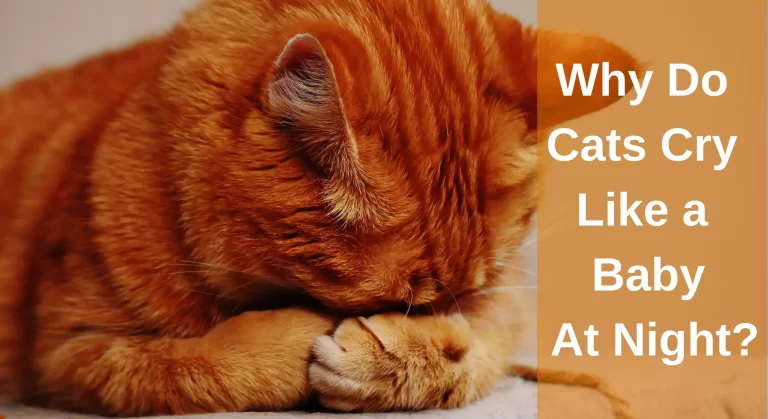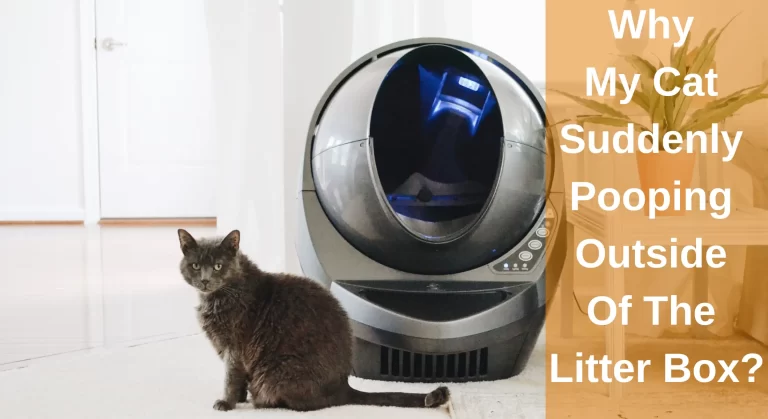Why Does My Cat Go Crazy and Run Around? [Cat Zoomies]
A cat acting out can sprint around the house or experience a nighttime spike of energy followed by a chorus of meows. A crazy cat may be amusing to watch, but the behaviour may also become dangerous, increasing the possibility of someone getting bitten and the cat inadvertently tipping things over. The cat may just be acting in accordance with its nocturnal or predatory tendencies, in which case you may help it and lessen the likelihood of havoc or bodily harm, or the unpredictable behaviour may also be a sign that something is really wrong with their health. Here are possible reasons why your cat goes crazy and moves here and there quickly.
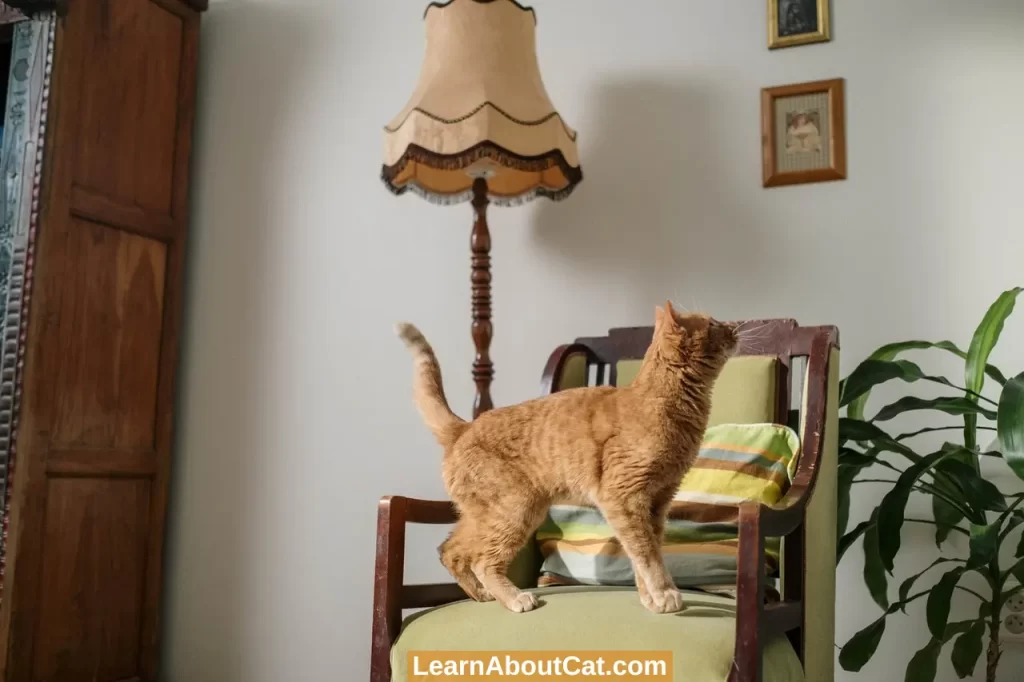
Reasons Why Does My Cat Go Crazy and Run Around
Inside and Outside Intruders
Why is your cat pacing wildly? It’s likely that your cat is acting out because there are other animals at the window or inside the building. It can be uncomfortable to see another animal savagely stomping through that region. It’s a good indication when your cat runs from window to window or even meows so loudly that it rattles the ceiling.
Nighttime Instincts
Your cat’s nocturnal tendencies may be a factor in its peculiar behaviour, especially if it manifests at night. Since their prey is most active between dusk and dawn, cats are better at hunting in low light than their prey, giving them an edge. so, they can hunt which increases their chances of survival.
Obnoxious Tendencies
If your cat discovers a mouse hiding within your home, it will hunt the mouse, bird, or other rodents until it is either captured or he will run away.
Once more, cats naturally display this hunting behaviour as a result of years of evolution. Even if you give your cat its prey on a silver platter, it is in its nature to follow, hunt, and seek it out.
Fleas
Your cat may get itchy and sensitive if they are bitten by them and have blood drawn from fleas. Some cats are hypersensitive to flea bites, which makes them more painful and uncomfortable causing them to run.
Cognitive Impairment in Cats
Cats also experience cognitive degeneration as they become older, which is really quite common. Restless behaviour, such as frantic racing around, is a common indicator of feline cognitive impairment in cats.
Stolen Power
Is your cat left alone at home all day if you go to work? If this is the case, the pent-up energy that your cat has been dragging about all day may cause them to have a psychotic episode. Because they haven’t had the chance to play with anyone, their energy has just been building, and when you go home, they have this huge, insane eruption.
Hyperthyroidism
The hyperthyroidism of your cat may also be to blame for the cat zoomies. This condition interferes with the thyroid gland’s capacity to function and typically affects older cats. The sudden increase in metabolism that occurs when your cat initially develops hyperthyroidism may make them feel energised and energetic.
Also Read: Signs Your Cat is Dying of Thyroid Disease
Urinary Discomfort
If bowel or urine discomfort may be brought on by an inflammation of the urinary system, colon, or rectum, they may experience craziness. This might make it very painful for your cat to urinate or faeces, depending on how much of their digestive or urinary systems are affected.
What Are Cat Zoomies?
Cats who have the zoomies occasionally have a little glitter in their eyes. Running erratically up and down stairs, springing out from under tables, speeding about the house, or meowing loudly while jumping on and off your lap are some examples of these fast movements. Once the cat zoomies have ended, your cat may just unwind once again.

How to Prevent Your Cat From Getting the Zoomies
It’s not comfortable for your kitty if your cat often exhibits the zoomies. This is particularly true if your cat meows loudly at night. They may keep you and your family up all night, which would leave you feeling worn out and unpleasant. Here are some of the tips and tricks through which you can stop your kitten from getting zoomies.
Feed Small Amounts at Regular intervals
Try to feed your cat at the same times every day to help them learn when to be awake and when to be asleep. You may prevent irregular outbursts during the day and night by splitting the funds equally, which will keep their energy levels more constant.
Create a Stress-Free Environment
If your home is stress-free, your cat will be happier, more at ease, and less likely to act out in a crazy way out of boredom, pent-up energy, or anger.
Underlying Medical issue
Zoomies in cats are typical and do not always indicate sickness. Your cat may be suddenly hyper or do they exhibit other illness symptoms. Visit your cat’s vet right away if you notice any sickness symptoms or signs.
Utilise Soothing Pheromone Products
Unexpected triggers might enter your house and scare your cat out even if you provide them with a clean litter box, lots of hiding spots, a regular schedule, and plenty of enrichment. So, using pheromone calming products (e.g, Pheromone diffuser or pheromone collar etc.) is the best option for getting zoomies.
Promote Exercise
They will be able to use up any extra energy if you give them enough exercise regularly. Ideally, it will make them too worn out to have a significant meltdown. An owner should play with their kitty felines for 15 minutes a day.
Remove any External Stimuli
Some cats exhibit frantic behaviour when they see other cats or animals outside your home, which they misinterpret as intruders. Your cat may grow agitated as a result and start racing around erratically.
Is Your Cat Acting Weirdly?
Have you observed your cat isn’t behaving normally? Cats can exhibit odd behaviour for humorous or serious reasons as well which are described below.
She/he Might be Sad
A cat has lost a dear companion, so she becomes sad. He hides under the bed. He has little interest in grooming because there is no benefit to it. He sleeps more than the usual 18 hours each day as well.
Your Cat Could Detect a Threat
Your current cat desires the death of the new cat you’ve just brought home. They shout as they speed across the room, their race ending in a furious flurry. You’re afraid to leave them alone together because they pee outside the litter box.
Your Cat is Not the Greatest Admirer of Yours
Perhaps he/ she may not like you so run quickly. He rushes under the coffee table as soon as you try to pat him. He reappears a short while later and in your presence headbutts your boyfriend profusely.
Cat is Ill
Your cat may be trying to tell you something is wrong if she feels sluggish, stops eating, hides for more than a day, drinks an excessive quantity of water, stop using the litter box, or exhibits a rapid change in mood.
When Should You Start Worrying About Cat Zoomies?
Zoomies are a common cat behaviour and a great way to let off surplus energy. However, if you frequently catch your cat pacing about the house in a frantic manner, it may be an indication that she needs more exercise. Play more with your cat and spend more time connecting with it.
If your cat suddenly starts getting the zoomies regularly, gets excessively active, or is agitated by them, bring her in for a checkup with your veterinarian. Particularly in older cats, increased and unanticipated bursts of activity may be a sign of hyperthyroidism.
Certain cats experience zoomies more frequently when their owners go to sleep at night. If this is the case, it may be time to adjust your morning feeding schedule or increase the amount of playtime your cat receives throughout the day.
Bottom Line on Why Does My Cat Go Crazy and Run Around
Your cat’s crazy behaviour is likely the result of pent-up energy from enjoying a restful day indoors. It’s also possible that your cat just expressed its natural aggression after spotting another animal.
However, there are a few circumstances in which a cat’s worried behaviour may point to a medical problem. As a result, keep an eye out for further illness indicators and consult a veterinarian if you have any concerns about your pet. After therapy, your cat will quickly return to normal.
Who is Isabella?
My name is Isabella, and I am a dedicated and knowledgeable cat enthusiast. With years of experience caring for cats and a deep love for felines, I made a mission to help other cat lovers navigate the challenges of cat ownership.

